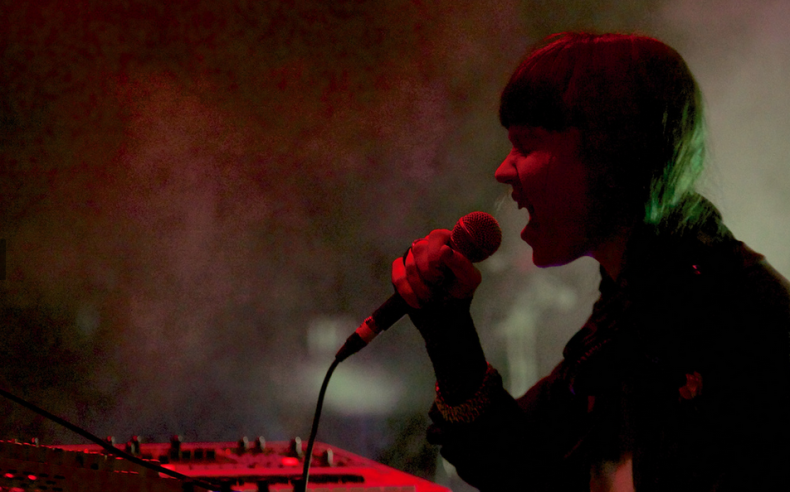Everything You Need to Know About Band Management Part 3: Models

When we talk of managing the business of being a musician and growing the value around music, we’re really talking about two business models: exploitation and patronage.
Exploitation
Exploitation refers to exploiting one’s copyright. Copyright is an important topic, but lucky for you, we’re not going to get into it here. Just know that by expressing a musical idea by writing it down or recording it, you automatically get a monopoly over how that composition or recording is performed, copied, distributed, etc.
Another way of looking at it is that copyright exploitation allows the rights holder to control access to their music and turn it into a product.
Notice we say rights holder and not the musician, because many musicians sign over some of the rights to their songs to publishers, labels and other music business people through contractual agreements. These agreements are usually made when a musicians’ song value is low, with the expectation that the business people will increase the value of your music in exchange for a significant share of the profit. The term “exploitation” is quite fitting.
Since a holding a monopoly in a capitalist society is obviously pretty awesome, exploiting copyright has been the most lucrative revenue stream in music. We’re talking physical media sales, digital downloads, streaming, licensing, broadcasting and the like. All of these things derive their value from the rights holders’ monopoly control over access to listening to and using their music.
Exploitation is still immensely profitable (always more for the music business than the musicians), but it ain’t what it used to be. Digital technology means access to music is increasingly free. Access to most of music ever recorded is being bundled with cell phone contracts. Some musicians lament the devaluing of the exploitation value chain, demonizing streaming music one day, music pirates the next. Listen to these doomsayers at your own peril. To think that some change in the market, the law, or the technology will bring back the age of label cartels and Diamond awards is naive. Why would any musician in their right mind wish back the ethical bankruptcy of exploitation when a much more fair and sustainable alternative is emerging… an alternative as old as the music business itself: patronage.
Patronage

The second business model in music is one of patronage. Patronage is far older than the idea of copyright exploitation. For much of human history the business of music was patronage. Prior to the invention of recordings, sheet music was the dominant way of distributing music. Without recordings, performance was necessary to bring the music into existence. Audiences would patronize musicians by paying to attending their performances, or tipping. Earlier still, wealthy patrons would hire musicians to entertain their clique, and traveling minstrels performed for whatever people could spare.
Patronage has always been part of the musician business. Touring and merchandise are the staples of a band’s liquidity, and this hasn’t changed. What has changed is the ability of the musician to solicit direct support from fans. Distribution, marketing, video and audio recording… the technologies that used to require copyright to support financially are now affordable to most musicians if not free.
What is happening now is a movement away from copyright exploitation and towards patronage as an ever-greater percentage of musician revenue, particularly for independent artists. There are many reasons, not the least of which is fans fed up with the music industry’s history of price fixing, exploiting and objectifying musicians, suing fans, payola… the list goes on.
Born after Napster was sued out of existence, today’s generation doesn’t know of — let alone care about — the music industry’s history of corruption and exploitation. For young fans, there is no reference point to demonstrate the fundamental difference in music making and listening that us older folks see. The monolithic influence of mainstream radio, music television, music press and other traditional media has waned. The consumer electronics, communications and technology industries have swallowed the music industry whole and are currently digesting it.
Music can’t be devalued. But access to music can, and copyright exploitation is losing its value.
Patronage is taking its place, thanks to technology that today’s generation is native with. It’s no longer about moving units. In today’s social, interconnected, always-on world, each fan becomes an individual revenue stream. This is the attention economy, and when attention is paid, musicians are paid.
Fans are becoming more valuable as access to music is becoming free. Make no mistake: there is still a lot of money to be made from exploiting your copyright. But exploitation not enough on its own, you must monetize the fan relationship in the modern music game.
So what does this have to do with managers? For one thing, they’re getting harder to find. Many managers used to be and still are in it for the payout of the record deal. Getting as much as a quarter of the advance, signing a deal was and still is a huge payoff for managers. But with label budgets shrinking across the board, the advance is becoming a less attractive number to work months toward. Crowdfunding campaigns are slowly but steadily starting to emerge as the way bands finance records without labels. For example, Pledge Music takes 15% for actively managing your crowdfunding campaign, a white-glove service that has attracted household-name artists and generated an unprecedented success rate among crowdfunding musicians.
It’s important to look at your act through the eyes of a manager. Ask yourself, “Would I invest many hours of my time on this act as it is today? Can I see it developing into a business?” To answer those questions, you need to understand what kinds of things your manager would do to grow the business of your music. You need to start thinking like a manager — because until you find one, you are the manager. And as the manager of your small musician business, you should familiarize yourself with the myriad revenue streams that the exploitation and patronage business models break down into. That will be the topic of of part 4: Revenue.

















All your comments are very right! I do control my music in terms of waxing,marketing and performance daily,
But I only need a capital entensive tour manager for more shows around the world.
One man band,acoustic guitar player and vocalist in different languages across the globe.
I do serenade in classic restaurants and cocktail lunch or dinners events.
Best regards!